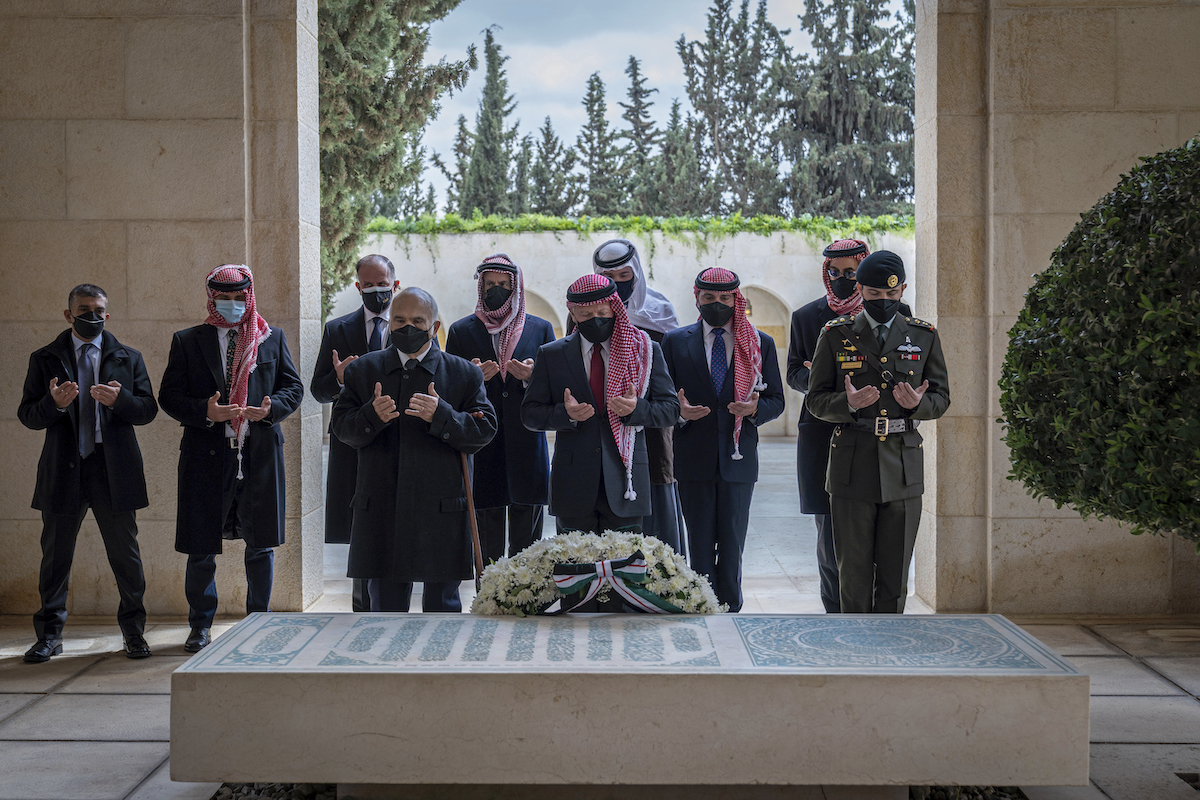The former Crown Prince of Jordan, Hamzah bin Al Hussein, was ordered on April 3 to stay confined in his Amman palace, though Jordan’s Army Chief, Major General Yousef Huneiti denied reports of his arrest, according to Al Jazeera.
Hamzah’s ‘house arrest’ happened after security forces in Jordan arrested many high-profile figures as part of an ongoing security investigation concerned with national security.
The Washington Post stated as many as 20 people were arrested for involvement in the alleged plot to unseat King Abdullah. The individuals detained include Bassem Ibrahim Awadallah, former head of the royal court, and Sharif Hassan bin Zaid, a member of the royal family.
The military stated they were concerned about the security and stability in the kingdom. Just a few hours after being issued this warning, Hamzah was instructed not to leave his home nor contact anyone.
According to a statement issued by Hamzah to BBC, he stated Huneiti was the one that ordered him to be placed under ‘house arrest.’ Hamzah denied all accusations of being involved in a conspiracy, but investigations continued.
Deputy Prime Minister Ayman Safadi said the investigations were intended to monitor communications with foreign parties “over the right timing to destabilize Jordan,” including a “foreign intelligence agency contacting Prince Hamzah’s wife to organize a plane for the couple to leave Jordan.”
Hamzah’s mother, Queen Noor, tweeted a response to the allegations. “Praying that truth and justice will prevail for all the innocent victims of this wicked slander,” she wrote. “God bless and keep them safe.”
According to a former United States official, this malicious plot that Hamzah was accused of would involve protests that would appear to be a “popular uprising with masses on the street.”
Tribal support would be provided by the Herak, an activist group who have, in recent weeks, incited protests against corruption amid the coronavirus outbreak’s impact on the economy.
The economic tension in Jordan is “reflective of a domestic internal rift,” said Dalia Fahmy, associate professor of political science at Long Island University, according to Al Jazeera.
“The statement by the former crown prince about corruption really is reflective of what’s been happening economically in Jordan,” Fahmy said. “When you have a country that’s hurting economically, there comes a point when opposition within the government can rise…this is probably not going to go anywhere. But what the king has to do is lift some of the austerity measures.”
Hamzah was informed he was being punished for his presence at tribal meetings that openly criticized Jordan’s king, King Abdullah II, though not accused of participating himself.
The prince also stated the well-being of Jordanians “has been put second by a ruling system that has decided that its personal interests, financial interests, that its corruption is more important than the lives and dignity and future of the 10 million people who live here.”
“This country has gone from one that was at the forefront of the region in terms of education and healthcare, in terms of human dignity and freedoms, to one in which even to criticize a small aspect of a policy leads to arrest and abuse by the security services,” Hamzah stated.
Hamzah said he would disobey orders and still communicate with the outside world. He also said he would not escalate moves after being put under ‘house arrest,’ according to BBC.
The United States expressed its support for Abdullah and his efforts to ensure Jordan’s stability.
U.S. State Department Spokesperson Ned Price stated Abdullah was fully supported as a key partner of the U.S. “We are closely following the reports and in touch with Jordanian officials,” Price stated, according to Reuters.
Many other countries including Morocco, Oman, Saudi Arabia, Egypt, Bahrain, Lebanon, Kuwait, Iraq, Qatar, Yemen, Palestine and the UAE expressed similar sentiments.
Jordan resident Mohamad Abdel-Latif stated, “We wish for prosperity and progress for Jordan, and for the issues to be resolved as the king called for—within the royal family.”
Head of the Phenix Center for Economic and Informatics research institute in Amman, Analyst Ahmad Awad, stated the events were “the beginning of a crisis and not the end.”
“This shows that there is a need for political, economic and democratic reforms,” Awad said.
On April 11, Hamzah was seen in public for the first time since the accusations, next to Abdullah during a ceremony marking a major Jordanian holiday. Although it was seen as a sign of unity, there was no public comment made, and Hamzah’s location after the ceremony remains unknown.
